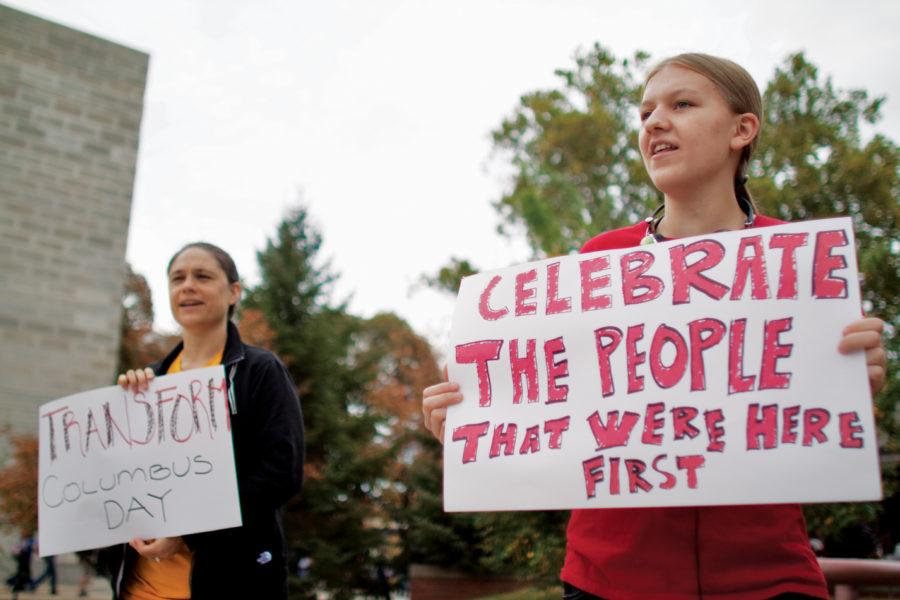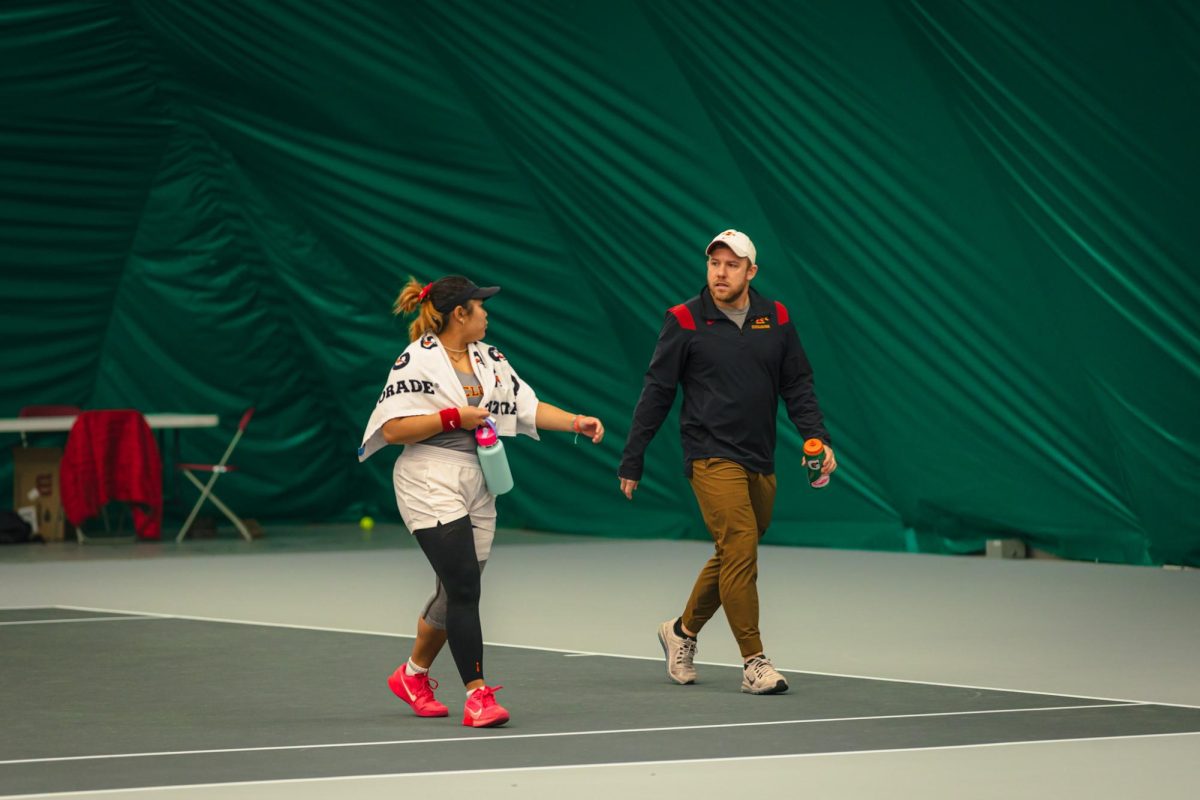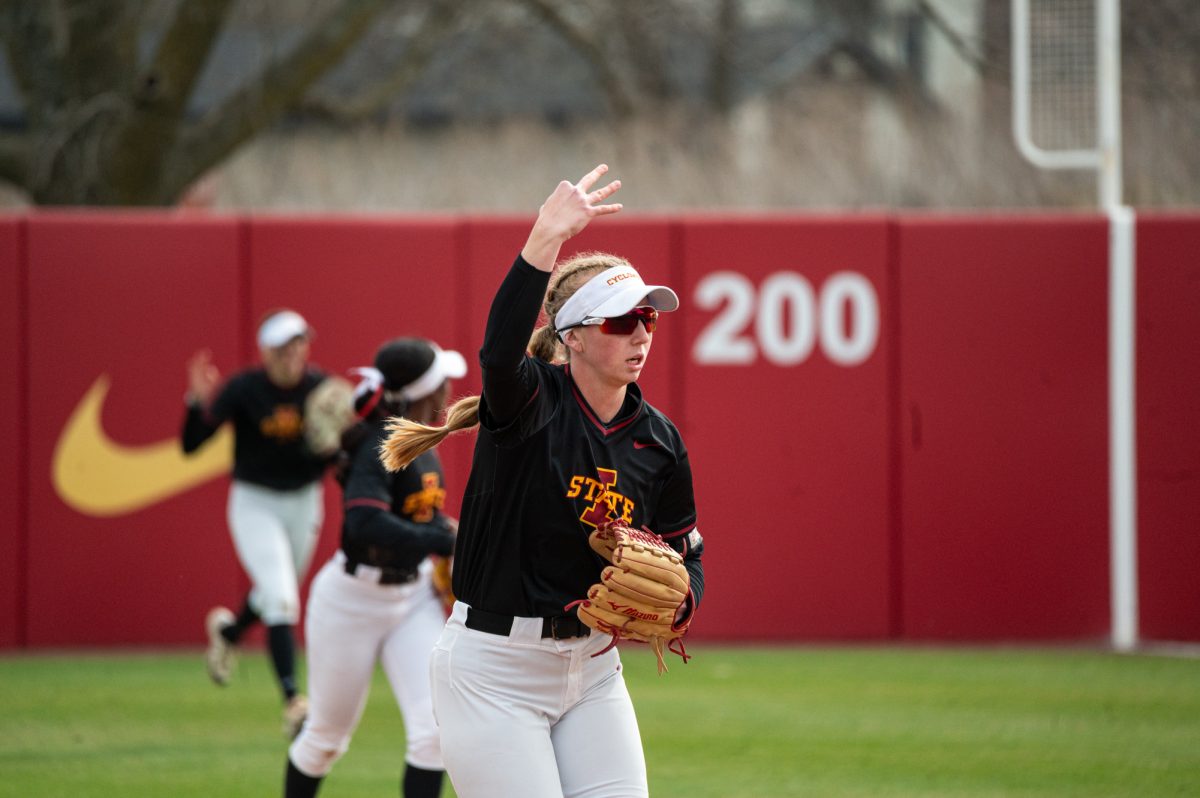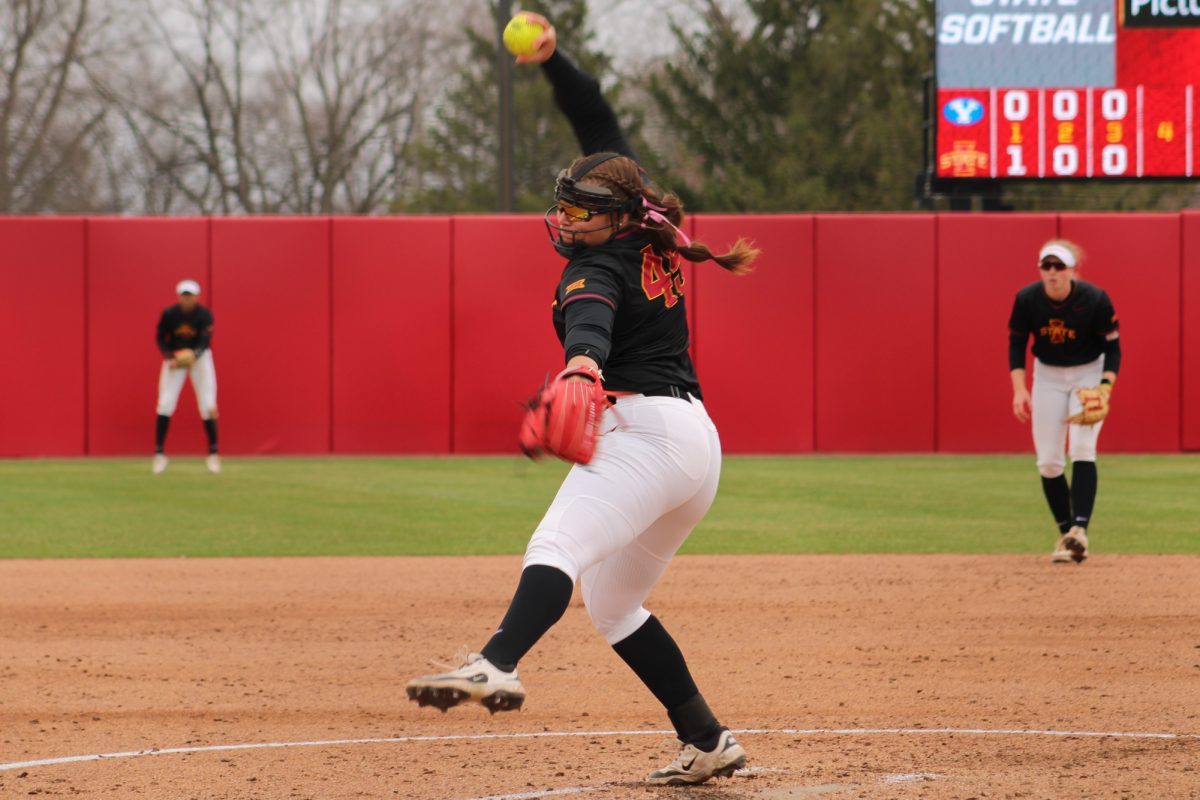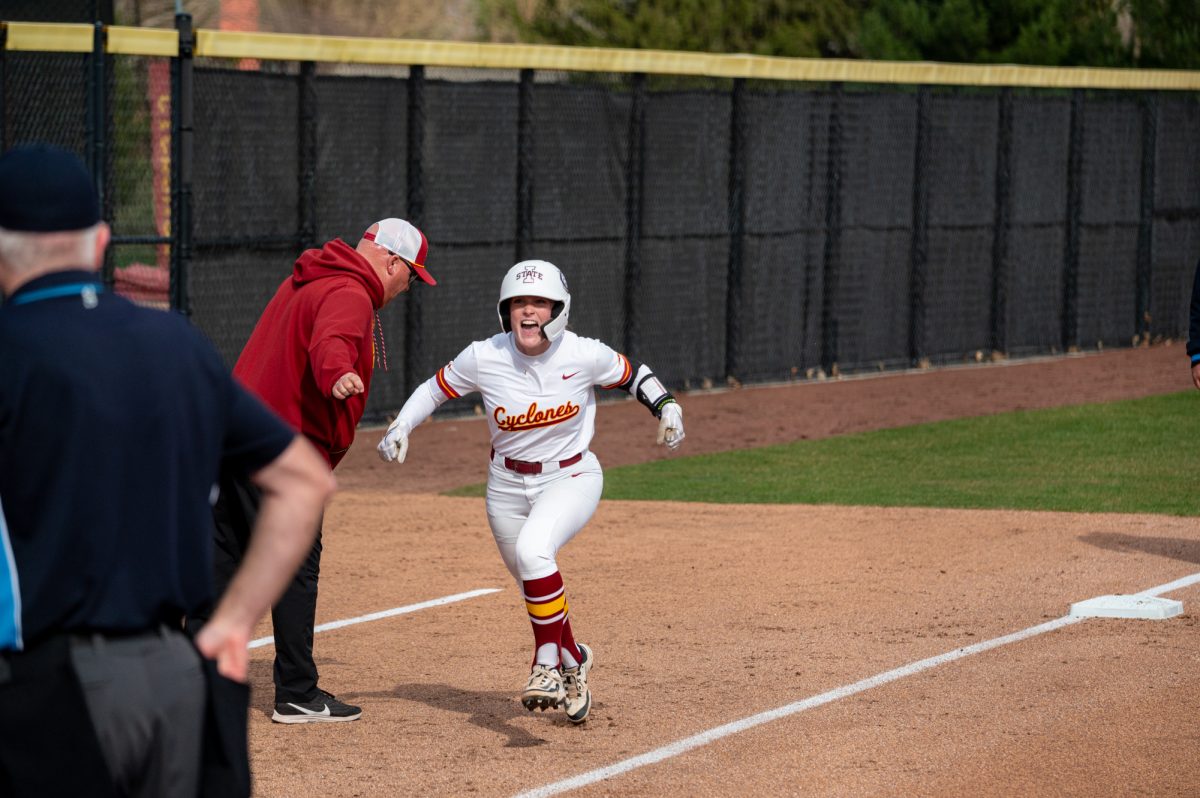Students protest teaching behind Columbus Day
October 11, 2010
Protesters lined the sidewalk and chants of, “History textbooks are outdated, Columbus is overrated,” filled the silence outside Parks Library.
Monday showed Columbus Day on the calendar, but for the people protesting Monday afternoon, the national holiday is celebrating the wrong person.
More than 20 students handed out leaflets, led chants and invited others to join the protest to help educate students on the full story of Christopher Columbus.
According to the paperwork distributed to students, Columbus was responsible for slaughtering, enslaving and exploiting native inhabitants when he arrived to the Americas. He also pushed away an entire culture and forced European culture onto the local population.
“This holiday needs to change so we can learn from the past to change the present and the future,” said Thao Pham, junior in pre-business and one of the organizers of the event. “The current holiday is about oppression of a people.”
Pham said she hopes the protest will help students spark discussion on changing textbooks to be more diverse and have represent more ethnic groups in a positive light.
“There is more history than what is in the textbooks right now, and more funding needs to go to ethnic studies and changing textbooks,” Pham said.
Julia Falley, senior in performing arts, agrees with Pham that the textbooks need to be changed.
“We teach our children that Columbus was this hero and that he discovered America, and it’s not true,” Falley said. “You can’t discover a land with millions of other people already living there.”
Instead of Columbus Day, the group of students would like the day to change to better represent the Native Americans — and not just the ones affected by Columbus.
Pham believes it’s unfair to have Native American and American children celebrate Columbus without students learning all the details about the individual.
“Many people believe Columbus is a hero, but he is responsible for genocide and slavery of a people,” Pham said.
Falley said that lack of diversity in textbooks allows for future mistakes to be made by future generations.
“We can’t just passively stand by. The most important thing is to learn from history’s mistakes,” Falley said.
Pham and Falley feel the use of ethnic studies helps students see through another culture’s eyes and learn about possible different sides of a story.
“Ethnic studies are important because it allows us to think of the lives of people who have been oppressed or left out of the classroom,” Falley said. “All we get is the white European male point of view.”


